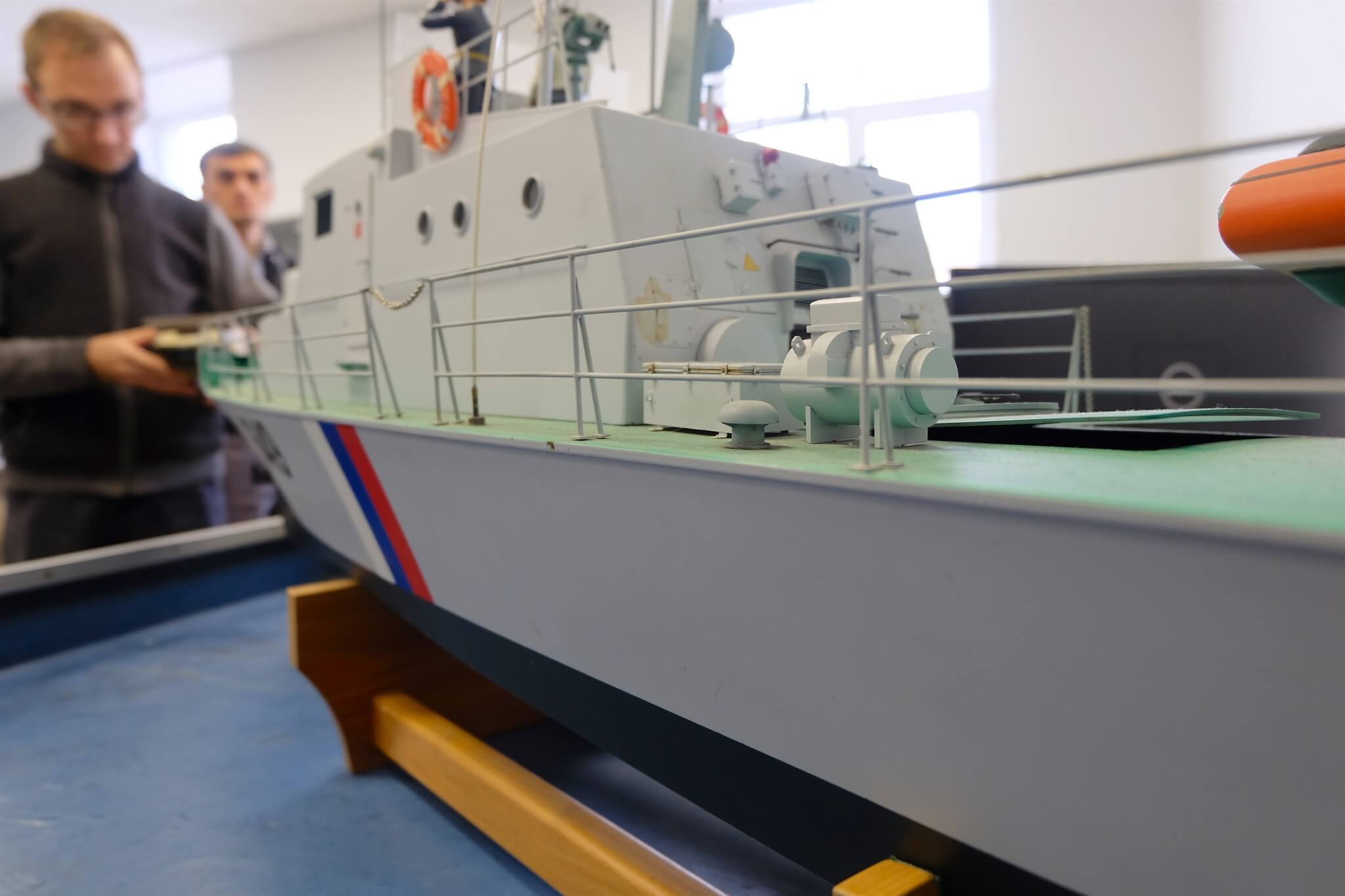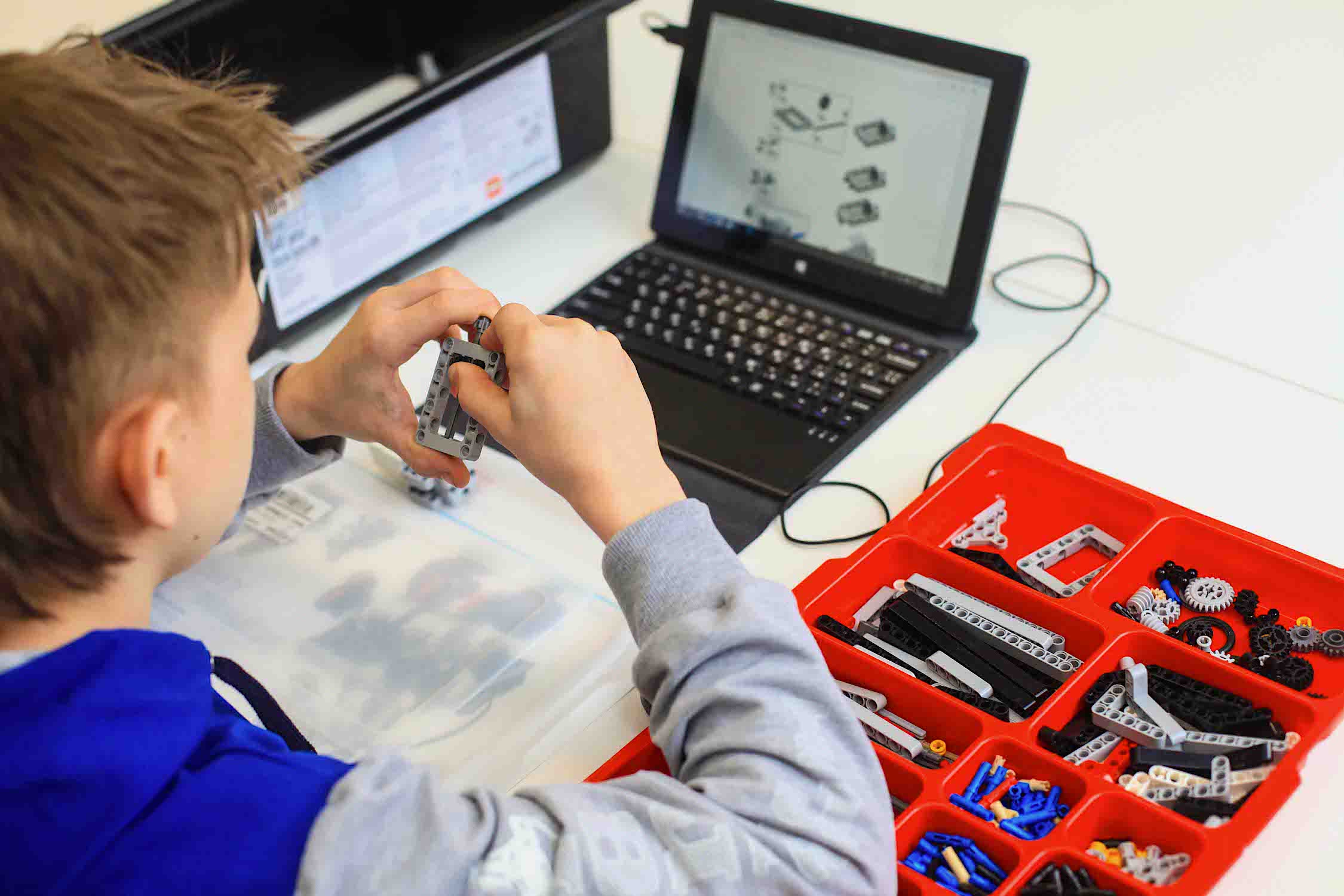GoROBO is an ITMO University project through and through: one of the co-owners graduated our mechatronics MA program, and two other employees are current postgrad students.
Let’s talk about the educational environment they want to create, why they chose to build such an unusual startup, and what awaits GoROBO clubs in the future.

© Inside ITMO University: The robotics lab
Robotics are as popular as ever. According to the Russian Association of Robotics, a total of 1500 robotics clubs operated in the country as of 2017. This number continues to grow, alongside the number of franchises that make opening such clubs easier. Public schools and youth centres are purchasing specialized equipment to open up robotics clubs of their own. A new breed of maker spaces for children, dubbed «Quantoriums», are popping up across the country.
The overall level of expertise in robotics grows together with the infrastructure, which means that, each year, there are more and more qualified professionals eager to educate children. All good signs for a business like GoROBO. Eldar Ihlasov, one of GoROBO’s co-founders, admits that he wouldn’t have opened this business if not for his eldest son, who became involved with the local youth centre’s robotics club. After helping his child secure the second place in a city-level robotics competition, Eldar realised that he really enjoyed this sort of work. After a year of doing this at home, he opened the first GoROBO location.
The early days of GoROBO were tough: most students left the centre after the end of the trial period. To deter them from leaving, Eldar decided to purchase a kid-friendly educational 3D printer. As luck would have it, the perfect device for his needs was right under his nose — at ITMO University. Local engineer Stanislav Pimenov has been developing such hardware for a while now, and was able to help Eldar. Following the acquisition, the business troubles started subsiding and Eldar extended an offer of partnership to Stanislav.
As of this moment, there are twelve people on the GoROBO payroll, not counting outsourced labour. They operate seven clubs all over the city. Classes are taught by university seniors and STEM degree holders with experience in competitive robotics, while the administrators facilitate other aspects of club operations. Each of the founders is personally supervising several locations — keeping track of large-scale issues, advancing marketing efforts, and doing quality control.
The clubs are open to kids of 5 and up with no prior experience in robotics. There are three educational pathways. The first is a 2-year program for younger children. The second is a similar program aimed at teens. The most experienced of students are getting personalised assistance with their research projects and competitive endeavours.
During their studies, the kids build microcontroller-based gadgets and print 3D models. The use of free and open-source software (Scratch and TinkerCAD) ensures that, given the right equipment, kids can continue to apply their skills outside the club. At the end of the day, students are free to take their creations home, to use and show off.

© GoROBO
To help motivate their students, GoROBO clubs host internal robotics competitions in December and May. Throughout the year, the kids are encouraged to participate in city- and country-level events.
With seven locations already open, the founders have a good idea of what it takes to operate a GoROBO club. Now they want to take their business to the next level by becoming a full-fledged franchise. To make this transition smooth, the company chose to enrol into the ITMO University accelerator program.
They worked with experts in the field of education, and exchanged ideas with other accelerator residents. The assigned curator helped them create a proper business plan and shape the vision of the project’s future.
P.S. GoROBO clubs are open from September to May, just like regular schools. Parents cannot be present during the class, but are welcome to look at their kids’ creations once it is over. In the near future, the company is planning to develop a platform to track students’ progress and host remote classes.
Let’s talk about the educational environment they want to create, why they chose to build such an unusual startup, and what awaits GoROBO clubs in the future.

© Inside ITMO University: The robotics lab
The robotics revolution
Robotics are as popular as ever. According to the Russian Association of Robotics, a total of 1500 robotics clubs operated in the country as of 2017. This number continues to grow, alongside the number of franchises that make opening such clubs easier. Public schools and youth centres are purchasing specialized equipment to open up robotics clubs of their own. A new breed of maker spaces for children, dubbed «Quantoriums», are popping up across the country.
The overall level of expertise in robotics grows together with the infrastructure, which means that, each year, there are more and more qualified professionals eager to educate children. All good signs for a business like GoROBO. Eldar Ihlasov, one of GoROBO’s co-founders, admits that he wouldn’t have opened this business if not for his eldest son, who became involved with the local youth centre’s robotics club. After helping his child secure the second place in a city-level robotics competition, Eldar realised that he really enjoyed this sort of work. After a year of doing this at home, he opened the first GoROBO location.
Building the team
The early days of GoROBO were tough: most students left the centre after the end of the trial period. To deter them from leaving, Eldar decided to purchase a kid-friendly educational 3D printer. As luck would have it, the perfect device for his needs was right under his nose — at ITMO University. Local engineer Stanislav Pimenov has been developing such hardware for a while now, and was able to help Eldar. Following the acquisition, the business troubles started subsiding and Eldar extended an offer of partnership to Stanislav.
As of this moment, there are twelve people on the GoROBO payroll, not counting outsourced labour. They operate seven clubs all over the city. Classes are taught by university seniors and STEM degree holders with experience in competitive robotics, while the administrators facilitate other aspects of club operations. Each of the founders is personally supervising several locations — keeping track of large-scale issues, advancing marketing efforts, and doing quality control.
«Initially all of my classes were built around educational Lego kits. Then I started hiring teachers, and purchased a 3D-printer. That’s how we began offering 3D modelling courses. Last year we developed a Scratch programming curriculum and an Arduino curriculum»
— Eldar Ihlasov
Education, education, education
The clubs are open to kids of 5 and up with no prior experience in robotics. There are three educational pathways. The first is a 2-year program for younger children. The second is a similar program aimed at teens. The most experienced of students are getting personalised assistance with their research projects and competitive endeavours.
During their studies, the kids build microcontroller-based gadgets and print 3D models. The use of free and open-source software (Scratch and TinkerCAD) ensures that, given the right equipment, kids can continue to apply their skills outside the club. At the end of the day, students are free to take their creations home, to use and show off.

© GoROBO
To help motivate their students, GoROBO clubs host internal robotics competitions in December and May. Throughout the year, the kids are encouraged to participate in city- and country-level events.
What’s next
With seven locations already open, the founders have a good idea of what it takes to operate a GoROBO club. Now they want to take their business to the next level by becoming a full-fledged franchise. To make this transition smooth, the company chose to enrol into the ITMO University accelerator program.
They worked with experts in the field of education, and exchanged ideas with other accelerator residents. The assigned curator helped them create a proper business plan and shape the vision of the project’s future.
«We were given an excellent opportunity to take part in various exhibitions and forums. We would like to try new things — for example, work with businesses that develop children’s educational courses for the web. We’re also thinking of translating our curricula into English and entering the international market. Meanwhile, we’re inviting aspiring engineers to come join our classes in St. Petersburg»
— Eldar Ihlasov
P.S. GoROBO clubs are open from September to May, just like regular schools. Parents cannot be present during the class, but are welcome to look at their kids’ creations once it is over. In the near future, the company is planning to develop a platform to track students’ progress and host remote classes.

